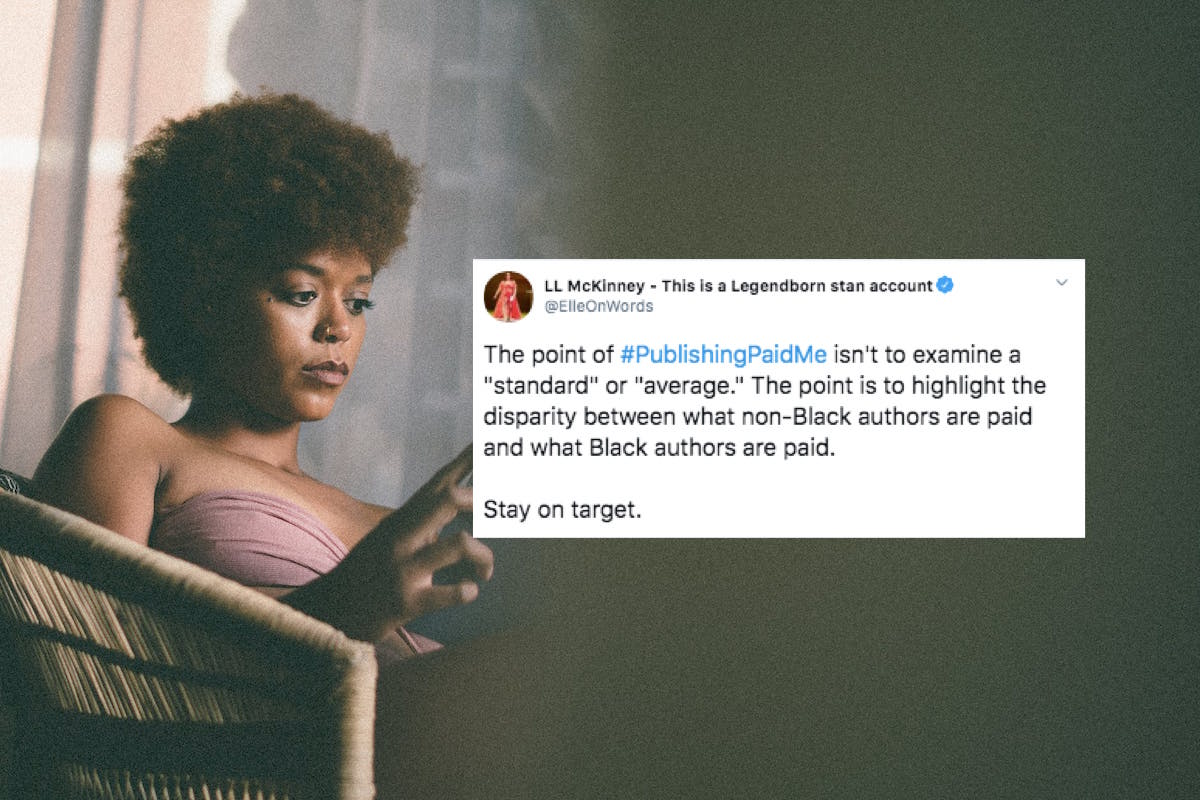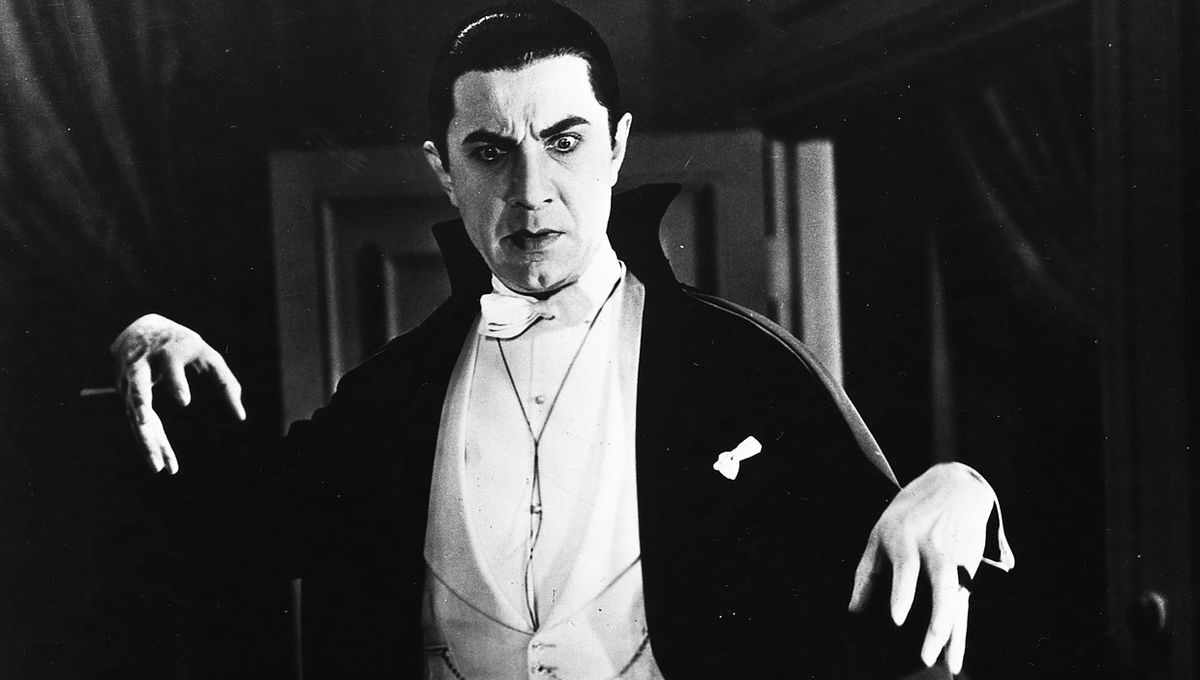A Twitter hashtag over the weekend kicked off by novelist LL McKinney has helped lay bare the wide disparity in book advance amounts in the publishing industry. McKinney’s stated intent with #PublishingPaidMe was to highlight “what’s paid to non-Black authors vs. Black authors.” (She has had to reiterate this target many times as debate raged and conversations veered.)
The hashtag took off, with many authors—from big names like Roxane Gay to debut writers—sharing their advance amounts. This thread was eye-opening, to say the least.
Final reminder, stay on target.#PublishingPaidMe is meant to highlight the disparity between what’s paid to non-Black authors vs Black authors. Not PoC. There’s a reason for that, especially in the context of this moment.
Be easy.
— LL McKinney – This is a Legendborn stan account (@ElleOnWords) June 7, 2020
Amongst those contributing were high-profile names like Roxane Gay, N.K. Jemisin, John Scalzi, V.E. Schwab, Kiese Laymon, Alexander Chee, and more.
Important to watch the #PublishingPaidMe hash, writers and esp BIPOC writers. For the curious, as I recall, my advances were:
$40K for each book of Inheritance
$25K for each book of the Dreamblood
$25K for each book of the Broken Earth— N. K. Jemisin (@nkjemisin) June 6, 2020
It’s pretty well known but $12,500 for An Untamed State, $15,000 for Bad Feminist, $100k for Hunger, $150k for Year I Learned Everything and a significant jump for my next 2 nonfiction books. #publishingpaidme
— roxane gay (@rgay) June 6, 2020
#PublishingPaidMe for YA:
20k for THE NEAR WITCH
25k for THE ARCHIVED
30k for THE UNBOUND
40k for THIS SAVAGE SONG
40k for OUR DARK DUET
100k for next book (It’s my 20th book, and I’m now a bestseller with a massive track record).— Victoria/V.E. Schwab (@veschwab) June 6, 2020
Okay it’s seriously uncomfy but been asked to do #publishingpaidme to highlight inequality so, just on uk adult book advances: book one 5k, two 20k, three 50k, four 45k, five 100k, six (reasons to stay alive) 25k (topped up later), seven 100k, eight 200k, nine 200k, ten 600k.
— Matt Haig (@matthaig1) June 7, 2020
#PublishingPaidMe $6000 for Edinburgh, an indie press, though they went bankrupt after paying 4; $45k from Picador for pbk rights (split w 1st house, half to me but half of my half lost to that bankruptcy); $100k for Queen; $55k for HTWAAN. I now earn royalties on the first 2.
— Alexander Chee (@alexanderchee) June 7, 2020
5K for Long Division and 3K for HSKY. Those books went on to sell 50,000 copies. I get roughly 10% of those sells. Asked politely if I could buy my books back and publish them right with Scribner. He offered Scribner and me a ridiculous price for books he bought for 8K.
— Kiese (@KieseLaymon) June 7, 2020
Ooooh, #PublishingPaidMe advances. Okay. For novels, and to the best of my recollection:
$6.5k (x2)
$2k
$13.5k
$25k (x2)
$35k
$115k
$100k (x3)
Then comes The Deal (13 books, $3.4M)Most 1/3 at signing, 1/3 at D/A, 1/3 at pub (The Deal breaks up pub for HC/PB). Plus royalties.
— John Scalzi (@scalzi) June 6, 2020
Sometimes the disparities on display were particularly striking and upsetting.
#PublishingPaidMe $45k for my debut YA fantasy The Belles https://t.co/I4LoQImShC
— Dhonielle Clayton (@brownbookworm) June 6, 2020
#publishingpaidme
$7,500 for Labyrinth Lost— Zoraida Córdova (@zlikeinzorro) June 6, 2020
But it was extremely important to see all of this laid out—and how often non-Black authors were given larger initial and ongoing advances across the board.
I always tell other BIPOC writers what I got paid bc money knowledge is power:
My first 6 books for YA and MG- $50k each
My next YA- $60k#PublishingPaidMe— Ellen Oh is on Hiatus & BlackLivesMatters Always (@ElloEllenOh) June 6, 2020
as someone who grew up with a cultural expectation of We Don’t Talk About Money, I understand why #PublishingPaidMe can seem scary.
But while withholding your wage *might* help *you*, disclosing it *will* help everyone, you included. So if you’re in a position to, show support.
— Paul Krueger (@NotLikeFreddy) June 6, 2020
Subsequent tweets have generated vital observations and ongoing conversations.
And because their race isn’t treated like a genre, a white author doesn’t have to be worried that the low sales of another white author puts the financial viability of *their* book in question, undermining their shot at better advances and marketing. #PublishingPaidMe https://t.co/S7B5L9ELRl
— Sofia Quintero (@sofiaquintero) June 6, 2020
Been keeping my eye on the #whatpublishingpaidme hashtag, but to reiterate what everyone else has said, this shocked the hell out of me and enraged me. https://t.co/VeLT6xZ4nT
— Julia Callahan (@pesty1079) June 8, 2020
i’m looking at the publishing paid me tag, and i don’t really understand how the numbers translate to wage over time etc but what i DO know is the amount paid to some cishet white authors compared to QPOC for similar books is…what the actual FUCK
— Sasha✿🌈BIM (@midnightb00ks) June 6, 2020
Some authors who wanted to share the information may have felt restricted by their contracts.
It has been brought to my attention that sharing #WhatPublishingPaidMe is forbidden by my contract.
In any job where you’re an employee, the National Labor Relations Act states that employers can’t ban the discussion of salary and working conditions among employees.
— Meg Elison (@megelison) June 6, 2020
A couple of friends wanted to join the #PublishingPaidMe conversation but their NDAs prevented them from sharing advance information publicly, so they’ve sent me their information to share anonymously. I’m gonna thread these:
— Leah Johnson (@byleahjohnson) June 7, 2020
One thing to keep in mind about advances is that while they can appear to be an astronomical number, they are not often paid in a lump sum, and agent fees and taxes are also subtracted. An advance is more of a bet on how a book will do, and if it does not earn back more than that amount in royalties, that’s it. This is equally important to keep in mind for the non-astronomical numbers.
N.K. Jemisin also took the time to explain further about advances:
OK folks. Getting lots of questions about #PublishingPaidMe, and need to clear up misconceptions. A lot of people are treating advances like the earnings for a book, and… no. Basically advances indicate what the publishing industry *thinks* readers will like in the future.
— N. K. Jemisin (@nkjemisin) June 7, 2020
As did literary agent Patrice Caldwell:
Payout in thirds is:
– 1/3 on signing of contract (40k bc the contract is for both books)
– 1/3 on delivery and acceptance of revised manuscript #1, ie after edits w/editor. ($20k)
– 1/3 on publication of book #1 ($20k)
– 1/3 on d&a book #2 ($20k)
– 1/3 on pub book #2 ($20k)— Patrice Caldwell (@whimsicallyours) June 6, 2020
The popular hashtag also sparked discussion about the low-paid positions within the field of publishing itself, and how this can disproportionately skew who works there.
After 7 years in publishing, my salary is $46K. There is no way I would be able to live and work in NYC on what I’ve been paid if I was not an upper middle class person whose parents live nearby and could support me when I was starting out. https://t.co/Cq4WydEU41
— Sarah Jane Abbott (@SarahJaneEyre) June 7, 2020
Remember, folks, this hashtag isn’t here to pit writers against each other, but rather to serve as a callout to the industry’s practices and particularly the differences between what is offered to Black and non-Black authors. We live in a culture where talking about earnings is discouraged from a very young age—a practice that only benefits employers, studios, and as we can see, publishing houses. Knowledge is power.
I think the most telling thing I’ve learned from #PublishingPaidMe is that non-Black writers with no previous writing credits get paid substantially more than Black writers who are critically acclaimed. An advance puts worth on a book’s potential. Y’all sit with that relevation.
— Karen Strong (@KarenMusings) June 7, 2020
the #PublishingPaidMe hashtag IS NOT about telling publishers/your agents “X got this advance so make sure I get that.”
It’s about asking publishers “WHY DO BLACK AUTHORS NOT GET THESE ADVANCES?”
— Squidwords Sami (@themoosef) June 6, 2020
#publishingpaidme @WritersofColor#ownvoices #AllyUp
Ask for a black woman editor…
Ask for a black woman cover artist…
Ask for a black woman voice artist…
Ask for a black woman illustrator…
Even if you aren’t a black woman writer.— Shea Butta Bullets ♐🏳️🌈 (@MShellyConner) June 8, 2020
Many more authors’ reports and important dialogues can be seen in the #PublishingPaidMe hashtag, which continues to grow.
We knew the list was racist, but….man….
And that the list HELPS debut authors? This is what we mean when we talk about how publishing does Black authors. Tying to #PublishingPaidMe. What stories are deemed worthy. https://t.co/9eVrDIbMTZ
— LL McKinney – This is a Legendborn stan account (@ElleOnWords) June 8, 2020
(image: Retha Ferguson/Pexels, LL McKinney on Twitter)
Want more stories like this? Become a subscriber and support the site!
—The Mary Sue has a strict comment policy that forbids, but is not limited to, personal insults toward anyone, hate speech, and trolling.—










Published: Jun 8, 2020 06:04 pm